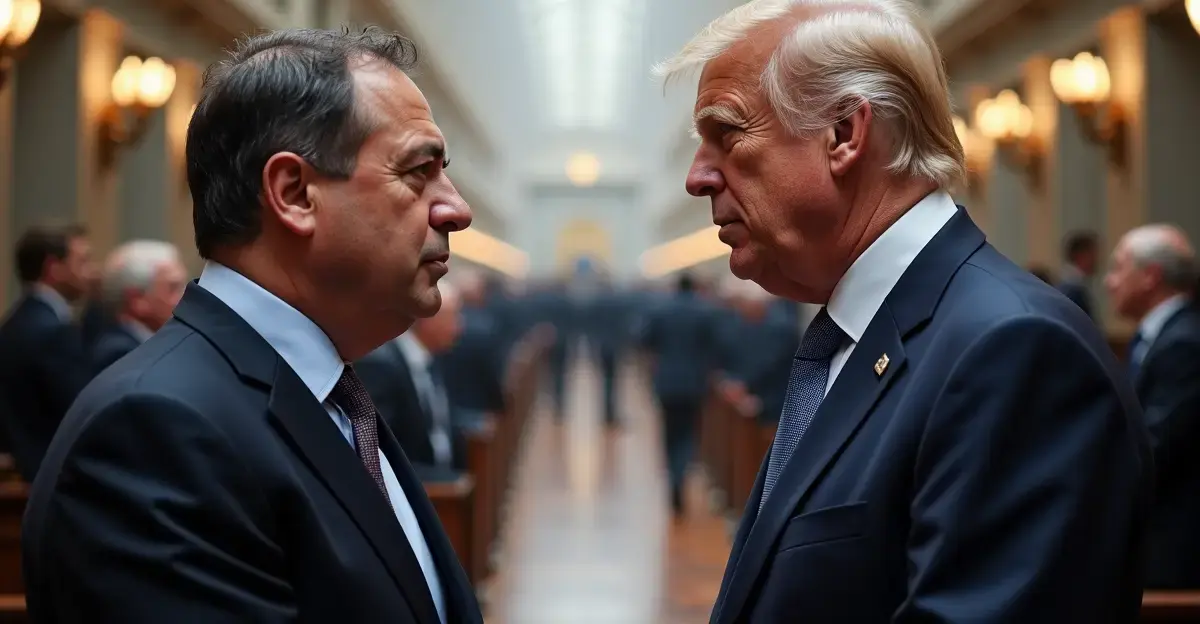Regional parliaments worldwide are debating political reforms focused on transparency, electoral integrity, and governance changes. Legislative agendas include digital voting, campaign finance regulation, and anti-corruption measures amid global political shifts.

Political Reform Debates Intensify in Regional Parliaments
Regional parliaments across various nations are currently engaged in intense debates over political reforms aimed at enhancing transparency, electoral integrity, and governance changes. These legislative agendas are being shaped by growing public demand for accountability and the need to modernize democratic processes in an era of rapid technological advancement and shifting geopolitical landscapes.
Focus on Electoral Transparency and Governance
The core of these reform discussions centers on electoral transparency and governance improvements. Many regional legislatures are examining measures to strengthen electoral processes, including the implementation of digital voting systems, enhanced campaign finance regulations, and stricter oversight mechanisms. 'We need to ensure that every vote counts and that the electoral process remains free from undue influence,' stated a parliamentary representative from a European regional assembly.
Recent developments in countries like Guyana highlight this trend, where the government has tabled the Representation of the People (Amendment) Act 2025 to decentralize vote tabulation and create electoral sub-districts. This move aims to enhance transparency ahead of the September 2025 general elections, though it has faced opposition from critics who argue it could enable voter suppression.
Legislative Agendas and Public Trust
Legislative agendas in regional parliaments are increasingly focused on rebuilding public trust through transparency measures. According to research from the Open Government Partnership, parliamentary transparency directly influences political behavior, public trust, and policy outcomes. Many regional bodies are implementing open data initiatives, live-streaming legislative sessions, and publishing detailed records of parliamentary proceedings.
'Transparency isn't just about making information available; it's about making it accessible and understandable to the public,' commented a transparency advocate working with multiple regional parliaments. 'When citizens can see how decisions are made and who influences them, it strengthens democratic accountability.'
Global Context and Regional Variations
The push for political reform in regional parliaments occurs against a backdrop of significant global political shifts in 2025. As noted in analysis from Timesloom, 2025 is witnessing transformative political changes worldwide, with major elections driving geopolitical realignments and increased focus on balanced policies addressing climate, education, and equality.
Regional variations in reform approaches are evident. In some regions, reforms focus on electoral law stability, echoing the Council of Europe's emphasis that transparency and stability in electoral law are essential for maintaining public trust. Other regions are experimenting with innovative governance models, including participatory budgeting and citizen assemblies.
Challenges and Implementation Hurdles
Despite widespread agreement on the need for reform, implementation faces significant challenges. Political polarization, resistance from established interests, and technical limitations often slow progress. The experience with India's electoral bonds, as detailed in Wikipedia's coverage, demonstrates how well-intentioned reforms can face legal and practical obstacles. The Supreme Court's 2024 decision striking down the electoral bonds scheme highlighted the tension between political funding transparency and privacy concerns.
'Reform is never easy, especially when it challenges existing power structures,' observed a political scientist specializing in regional governance. 'The key is building broad coalitions that include civil society, media, and international partners to sustain momentum for change.'
Future Directions and Emerging Trends
Looking ahead, regional parliaments are likely to continue focusing on digital governance, anti-corruption measures, and electoral modernization. The integration of technology into political processes, including AI-driven political forecasting and blockchain-based voting systems, represents an emerging frontier in political reform debates.
Youth-led movements are increasingly influencing these discussions, pushing for greater inclusion and sustainability in governance frameworks. As one young activist involved in regional parliamentary reform efforts noted, 'Our generation expects transparency as a baseline, not an aspiration. We're pushing for systems that reflect contemporary values and technological realities.'
The success of these reform efforts will depend on sustained political will, adequate resources, and genuine commitment to democratic principles across regional political landscapes.

 Nederlands
Nederlands
 English
English
 Deutsch
Deutsch
 Français
Français
 Español
Español
 Português
Português









